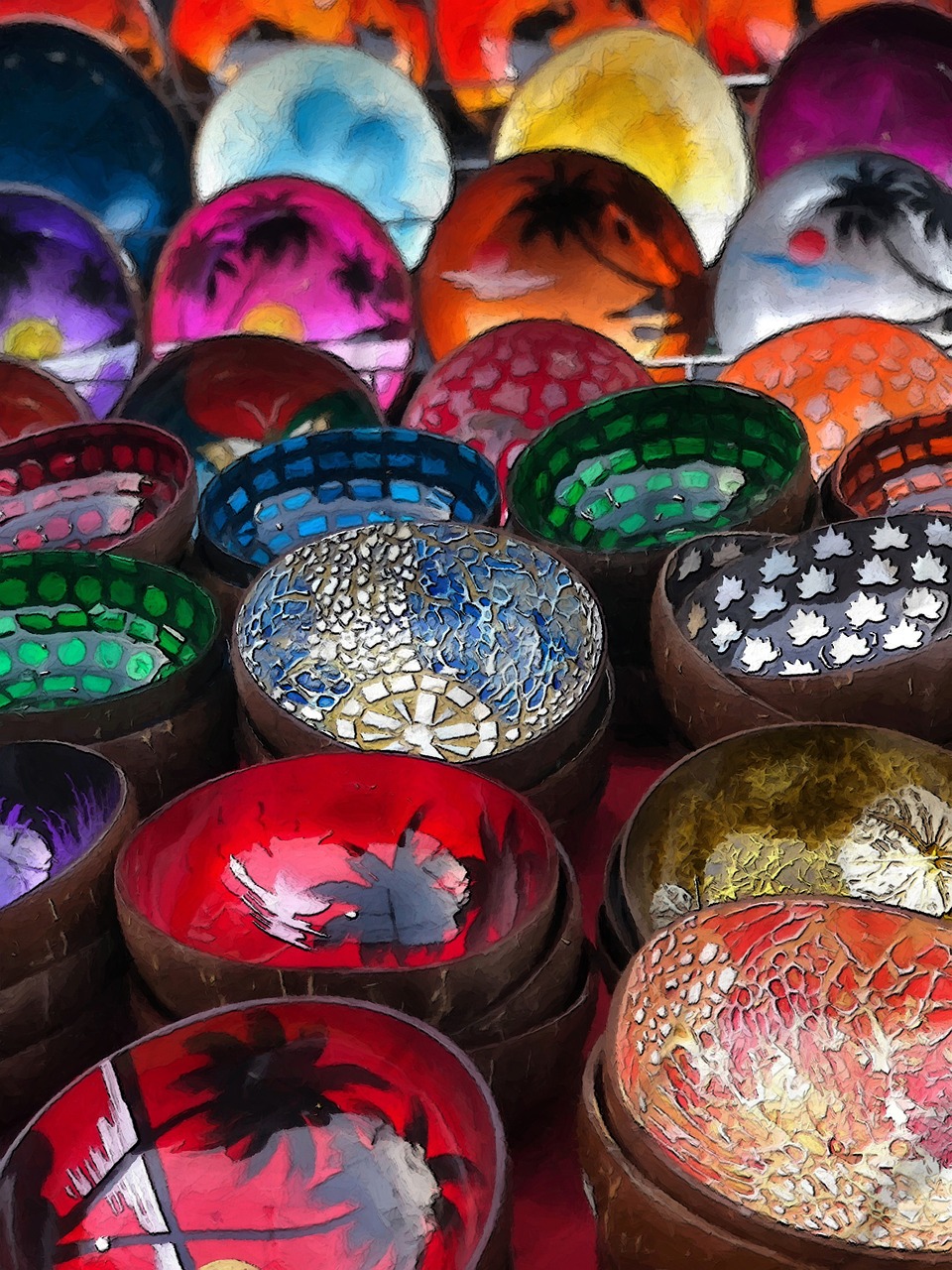Decoloniality and art
Indigenous Peoples’ Resistance
DOI:
https://doi.org/10.23925/2318-5023.2022.n6.e60857Keywords:
Decoloniality, Art, Indigenous peoples, Contemporary indigenous artAbstract
This article aims to build a relationship between the works of contemporary indigenous art and the decoloniality of being, from Nelson Maldonado-Torres. Its purpose is to address the links between contemporary indigenous artistic practices that use art as a form of resistance to make noticeable decolonial and environmental issues through a poetic communication, encouraging micropolitical actions and questioning the Eurocentric mindset. In order to develop that articulation, the corpus of the research starts from the analysis of three contemporary indigenous artists: Daiara Tukano, Jaider Esber and Denilson Baniwa. Their works elaborate discussions with the intention of creating cracks in the capitalist model that the “commodity people” (KOPENAWA) chose to live in, which leads to an environmental crisis and the genocide of the native people. The methodology chosen for the analysis of the corpus is the Extremity Approach (2007), developed by Christine Mello, which uses the notions of deconstruction (the idea of indigenous and colonization), contamination (of the Amerindian culture by the Eurocentric concept of culture) and sharing (ideas and art) to explore tensions and limit situations between artistic spaces and coloniality. The article has an interdisciplinary theoretical structure between the fields of philosophy and communication, inspired by (in the following order): Nelson Maldonado-Torres, who presents a couple of analytical dimensions of coloniality; Ailton Krenak and his concept of affective alliances to overcome the walls of coloniality; and finally, Norval Baitello, and his concept of communication through the expansion of affections.
References
ALZUGARAY, Paula. Novos protagonismos: Esbell na coleção do Pompidou. Select, São Paulo, 24 out. 2021. Disponível em: https://select.art.br/novos-protagonismos-esbell-na-colecao-do-pompidou/. Acesso em: 28 dez. 2022.
BAITELLO JUNIOR, Norval. A carta, o abismo e o beijo. São Paulo: Paulus, 2018.
BANIWA, Denilson. Eu sou Denilson. Getty. Disponível em: https://reinventing.getty.edu/pt/video/. Acesso em: 02 jan. 2023.
BEDINELLI, Talita. “Por que os garimpeiros comem as vaginas das mulheres Yanomami?”. Sumaúma, 13 set. 2022. Disponível em: https://sumauma.com/por-que-os-garimpeiros-comem-as-vaginas-das-mulheres-yanomami/. Acesso em: 26 dez. 2022.
BIENAL SÃO PAULO. Um manto de plumas vermelhas apresenta-se como uma entidade [...]. São Paulo, 21 set. 2021. Facebook: bienalsaopaulo. Disponível em: https://www.facebook.com/bienalsaopaulo/photos/a.10152023599644477/10159414748579477/?type=3. Acesso em: 31 dez. 2022.
CESARINO, Pedro. As alianças afetivas. Entrevista com Ailton Krenak. In: VOLZ, Jochen et al. (curadoria). Incerteza Viva: dias de estudo. 32ª Bienal de São Paulo, 7-11 dez. 2016. São Paulo: Fundação Bienal de São Paulo, 2016. p. 169-184.
DIÁLOGOS: Desafios para a decolonialidade. Jaider Esbell conversa com Ailton Krenak. UnBTV, Brasília, 16 jul. 2019. Disponível em: https://www.youtube.com/watch?v=qFZki_sr6ws. Acesso em: 02 jan. 2023.
G1.com. Veja os candidatos a deputado federal eleitos pelo estado de São Paulo. São Paulo, 03 out. 2022. Disponível em: https://g1.globo.com/sp/sao-paulo/eleicoes/2022/noticia/2022/10/03/veja-os-candidatos-a-deputado-federal-eleitos-pelo-estado-de-sao-paulo.ghtml. Acesso em: 26 dez. 2022.
GONZATTO, Camila. Conversa com Jaider Esbell: “Também temos o que mostrar: a nossos modos, com nossos protocolos”. C& América Latina, 03 maio 2021. Disponível em: https://amlatina.contemporaryand.com/pt/editorial/jaider-esbell/. Acesso em: 29 dez. 2022.
INFOAMAZONIA. Série na web conta história da Aliança dos Povos da Floresta. 14 abr. 2020. Disponível em: https://infoamazonia.org/2020/04/14/documentario-na-web-conta-historia-de-alianca-dos-povos-da-floresta/. Acesso em: 27 dez. 2022.
INSTITUTO BRASILEIRO DE GEOGRAFIA E ESTATÍSTICA. O Brasil indígena. Brasília: IBGE, Funai, 2010. Disponível em: https://www.gov.br/funai/pt-br/arquivos/conteudo/ascom/2013/img/12-dez/pdf-brasil-ind.pdf. Acesso em: 21 jan. 2023.
KOPENAWA, Davi; ALBERT, Bruce. A queda do céu: palavras de um xamã yanomami. Trad. Beatriz Perrone-Moisés. São Paulo: Companhia das Letras, 2015.
KRENAK, Ailton. A vida não é útil. São Paulo: Companhia das Letras, 2020.
KRENAK, Ailton. Ideias para adiar o fim do mundo. São Paulo: Companhia das Letras, 2019.
MALDONADO-TORRES, Nelson. Analítica da colonialidade e da decolonialidade: algumas dimensões básicas. In: BERNARDINO-COSTA, Joaze; MALDONADO-TORRES, Nelson; GROSFOGUEL, Ramón (org.). Decolonialidade e pensamento afrodiaspórico. Belo Horizonte: Autêntica, 2018. p. 27-54
MEDEIROS, Jotabê. Bienal de São Paulo é histórica com arte indígena. Amazônia Real, Manaus, 03 set. 2021. Disponível em: https://amazoniareal.com.br/bienal-de-sao-paulo/. Acesso em: 30 dez. 2022.
MELLO, Christine. Extremidades do vídeo. São Paulo: Senac, 2008.
MUNDURUKU, Daniel. Usando a palavra certa pra doutor não reclamar. Leituras dos Girassóis, São Paulo, 04 abr. 2019. Disponível em: https://leiturasdosgirassois.wordpress.com/2019/04/04/daniel-munduruku-sao-paulo-ancestralidade-e-literatura/. Acesso em 3 de jan. 2023.
MUSEU DA LÍNGUA PORTUGUESA. Nhe’ẽ Porã: Memória e Transformação. São Paulo, 2022. Disponível em: https://www.museudalinguaportuguesa.org.br/memoria/exposicoes-temporarias/nhee-pora-memoria-e-transformacao/. Acesso em: 31 dez. 2022.
PORTO-GONÇALVES, Carlos Walter. Abya Yala. Florianópolis: Instituto de Estudos Latino-Americanos da Universidade Federal de Santa Catarina (UFSC), 2009. Disponível em: https://iela.ufsc.br/projeto/povos-originarios/abya-yala/#:~:text=Muito%20embora%20os%20diferentes%20povos,sentimento%20de%20unidade%20e%20pertencimento. Acesso em: 29 dez. 2022.
PRÊMIO PIPA. Obras de Jaider Esbell integram a coleção do Centre Pompidou. São Paulo, 27 out. 2021. Disponível em: https://www.premiopipa.com/2021/10/obras-de-jaider-esbell-integram-a-colecao-do-centre-pompidou/. Acesso em: 28 dez. 2022.
ROSSI, Marina. Txai Suruí, destaque da COP26: “Vivo sob clima de ameaças desde que me conheço por gente”. El País, São Paulo, 09 nov. 2021. Disponível em: https://brasil.elpais.com/brasil/2021-11-09/txai-surui-destaque-da-cop26-vivo-sob-clima-de-ameacas-desde-que-me-conheco-por-gente.html. Acesso em: 28 dez. 2022.
SELECT. Arte que cura. Ka’a Corpo: Cosmovisões da Floresta destaca obras de artistas indígenas mulheres. São Paulo, 25 jan. 2022. Disponível em: https://select.art.br/arte-que-cura/. Acesso em: 02 jan. 2023.
SEMINÁRIO Internacional Arte e Ecologia. Políticas da existência – com Denilson Baniwa, Nego Bispo e Ana Mumbuca. Mediação: Fernando Porto. Rio de Janeiro, 16 mar. 2022. Disponível em: https://www.youtube.com/watch?v=LsWjaPKyXA8. Acesso em: 02 jan. 2023.
THEATRO MUNICIPAL DE SÃO PAULO. Exposição Contramemória. São Paulo, 2022. Disponível em: https://theatromunicipal.org.br/pt-br/evento/exposicaocontramemoria/: Acesso em: 03 jan. 2023.
TUKANO, Daiara. Amanhã dia 5 de junho se encerra a exposição [...]. São Paulo, 04 jun. 2022. Instagram: daiaratukano. Disponível em: https://www.instagram.com/p/CeZU9XovX3f/?igshid=MDJmNzVkMjY%3D. Acesso em: 21 jan. 2023.
TUKANO, Daiara. Brasil Futuro – As formas da Democracia – parte 1. Museu Nacional da República, Brasília, 03 jan. 2023. Instagram: daiaratukano. Disponível em: https://www.instagram.com/p/Cm9q5ULh-ye/. Acesso em: 21 jan. 2023.

Downloads
Published
How to Cite
Issue
Section
License
Copyright (c) 2022 Nhengatu

This work is licensed under a Creative Commons Attribution 4.0 International License.

This work is licensed under a Creative Commons Attribution-NonCommercial-ShareAlike 4.0 International License.
This license allows others to remix, adapt and create from your work for non-commercial purposes, and although new works must be credited to you and may not be used for commercial purposes, users do not have to license these derivative works under the same terms.

